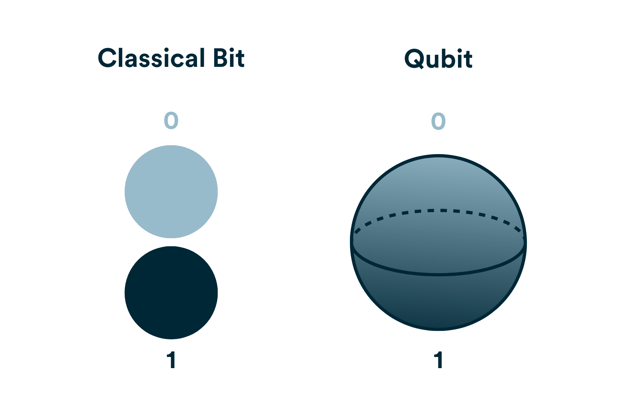Technology | Defining Dev | Quantum Computing
Alongside recent discussions of artificial intelligence and the idea of “what’s next” for the technological world, you’ve probably stumbled across the idea of quantum computing. It’s a rapidly-emerging technology that is seen as a milestone in the computing space due to the fact that machines that utilize quantum computing can outperform the practical capabilities of normal computers.
It may sound like some technology straight out of Star Trek at first, but it’s becoming more of a reality with every year of research. Let’s take a quick dive into what quantum computing is and what makes quantum computers so special.
What is Quantum Computing?
Based on the principles of quantum theory, quantum computing utilizes quantum mechanics to solve complex problems faster than classical computers. The technology allows computers to have shortcuts when retrieving and processing information without running through every possible outcome in a short amount of time.
To simplify it, think of quantum computing like a math equation; rather than looking at all the possible variables (A x B x C) to achieve a result, quantum computing simplifies the process (A3) in order to get to the result faster without all the busywork and having to read each variable. Due to this simplification, quantum computer hardware is able to store massive amounts of data through qubits as they aren’t limited to the classic 0 and 1 restrictions of classic bits.
To be able to perform these tasks, quantum computers use “qubits” to run multifaceted algorithms, enabling them to efficiently run applications, boost machine learning (ML) and artificial intelligence (AI) algorithms, and optimize complex systems.
What Even is a “Qubit?”
Quantum computers wouldn’t exist without the power of qubits. Qubits, also known as quantum bits, are similar to a standard computer’s regular bits that run a program and send instructions to the machine. What makes qubits special however is that they aren’t constrained nearly as much as bits. A bit can only hold a position of 0 or 1 within a two-state device. A qubit on the other hand can be either 0 or 1 simultaneously and can be represented anywhere on the sphere. This wild variability is known as “Superposition.”

Qubits have a combination of possible outcomes within the superposition principle. Fluctuating until they’re observed and measured, they create complex combinations that can now be represented in new ways in the space of the superposition.
Applying Quantum Computing to the Practical World
While the technology itself is complex, does it actually affect business practices? Absolutely! These are just a handful of examples where quantum computing could be a game changer:
-
Financial Sectors
Creating an investing plan for a large-scale client requires a ton of data. Quantum computing may be able to handle and efficiently generate a better plan with more accurate results. It can create a bottom line and a foundation for handling data in a similar way for future clients and situations.
-
Security
Quantum computing and the complexity of qubits can help with enhanced data encryption systems. Generating immensely complex passcodes or encryption keys, the technology may be essential for combating the ever-evolving landscape of cybersecurity risks.
-
Healthcare
From production to research, quantum computing has a future in assisting the healthcare industry with a variety of tasks. Simulating molecules, atoms, or an entire network of cells throughout the body would take a quantum computer a fraction of the time to generate versus its classic counterpart.
The Future of Quantum Computing
The future is bigger, bolder, and faster when it utilizes quantum computing. In the near future, quantum computers will produce breakthroughs in all sectors with their high-performance method of data processing.
Right now, we see quantum computers mirroring how classical computers were used in their early days — confined to labs and only being able to be accessed by large corporations. But as the technology continues to advance, it’s very possible that we could see them being placed in mainframes, microcomputers that could live on our desks, or even used to process huge amounts of data for artificial intelligence.
There is lots to be discovered with the power of quantum computing and other innovations that can help your business thrive. Let us help you discover your next big breakthrough with the Art of the Possible and see what innovative technology is the best fit for you.




